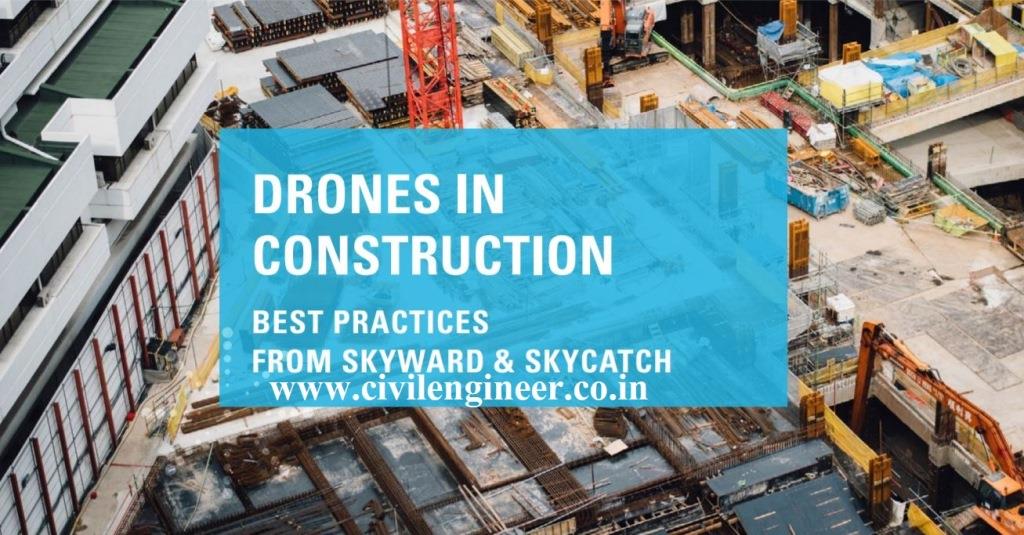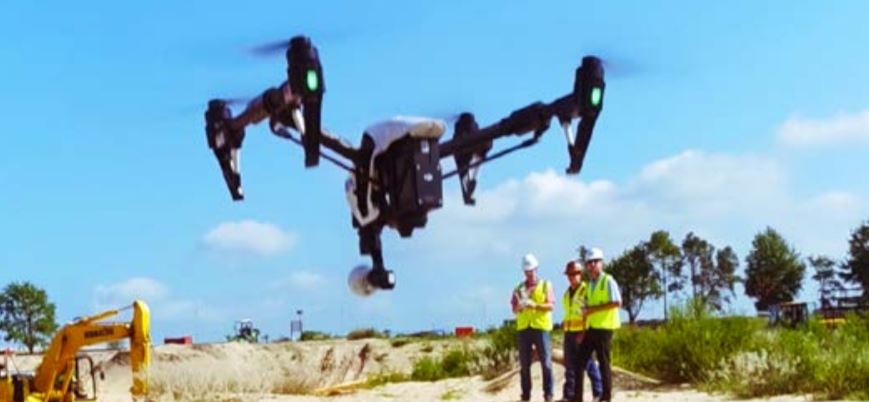
Drones, Connectivity, and Job Sites of the Future

The construction industry holds some of the most diverse and creative use cases for drones. But launching drones ops at a major construction enterprise involves much more than simply investing in a few aircraft, sensors, and software.
If you’re thinking about using drones at your construction site, you have a lot to consider: how to operate safely, which drones to invest in, meeting regulatory requirements, creating an efficient workflow, and collaborating across teams. That’s why we’ve put together a few resources to help set you and your program up for success from the start.
NEW EFFICIENCIES
Thanks to drones, Brasfield & Gorrie now enjoys reliable access to highquality aerial data throughout every phase of construction, from design
to inspection. Brasfield & Gorrie has used drones for a wide variety of use cases, including:
Thanks to drones, Brasfield & Gorrie now enjoys reliable access to highquality aerial data throughout every phase of construction, from design
to inspection. Brasfield & Gorrie has used drones for a wide variety of use cases, including:
• aerial progress images and video
• time-lapse videos
• site familiarization
• inspection of hazardous areas
• capturing 3D models of a site
• performing advanced measurements
• daily progress monitoring
• estimating earthwork quantities
• quality control inspections
• time-lapse videos
• site familiarization
• inspection of hazardous areas
• capturing 3D models of a site
• performing advanced measurements
• daily progress monitoring
• estimating earthwork quantities
• quality control inspections
From surveying and 3D modeling to structural inspections and job site monitoring, sophisticated construction companies are
turning to drones to save time, improve safety, and acquire data they’ve never had access to before.
Currently, the construction industry holds some of the most diverse and creative use cases for drones. But launching drone ops at a major
construction enterprise involves much more than simply investing in a few aircraft, sensors, and software.
Setting up a highly professional, low-risk drone operation within a construction company requires serious consideration and advance planning:
turning to drones to save time, improve safety, and acquire data they’ve never had access to before.
Currently, the construction industry holds some of the most diverse and creative use cases for drones. But launching drone ops at a major
construction enterprise involves much more than simply investing in a few aircraft, sensors, and software.
Setting up a highly professional, low-risk drone operation within a construction company requires serious consideration and advance planning:
• Which aircraft will you invest in?
• Will you outsource drone services, hire experts, or train existing personnel to fly safely and process data?
• How will you meet regulatory requirements in your jurisdiction?
• Is your operating process efficient? Will it scale as you grow and add more use cases?
• How will you maximize your investment?
• Do you already have the foundational elements of an aviation process (such as general operating manual & operational checklists),
or will you need to create them?
• Will you outsource drone services, hire experts, or train existing personnel to fly safely and process data?
• How will you meet regulatory requirements in your jurisdiction?
• Is your operating process efficient? Will it scale as you grow and add more use cases?
• How will you maximize your investment?
• Do you already have the foundational elements of an aviation process (such as general operating manual & operational checklists),
or will you need to create them?
